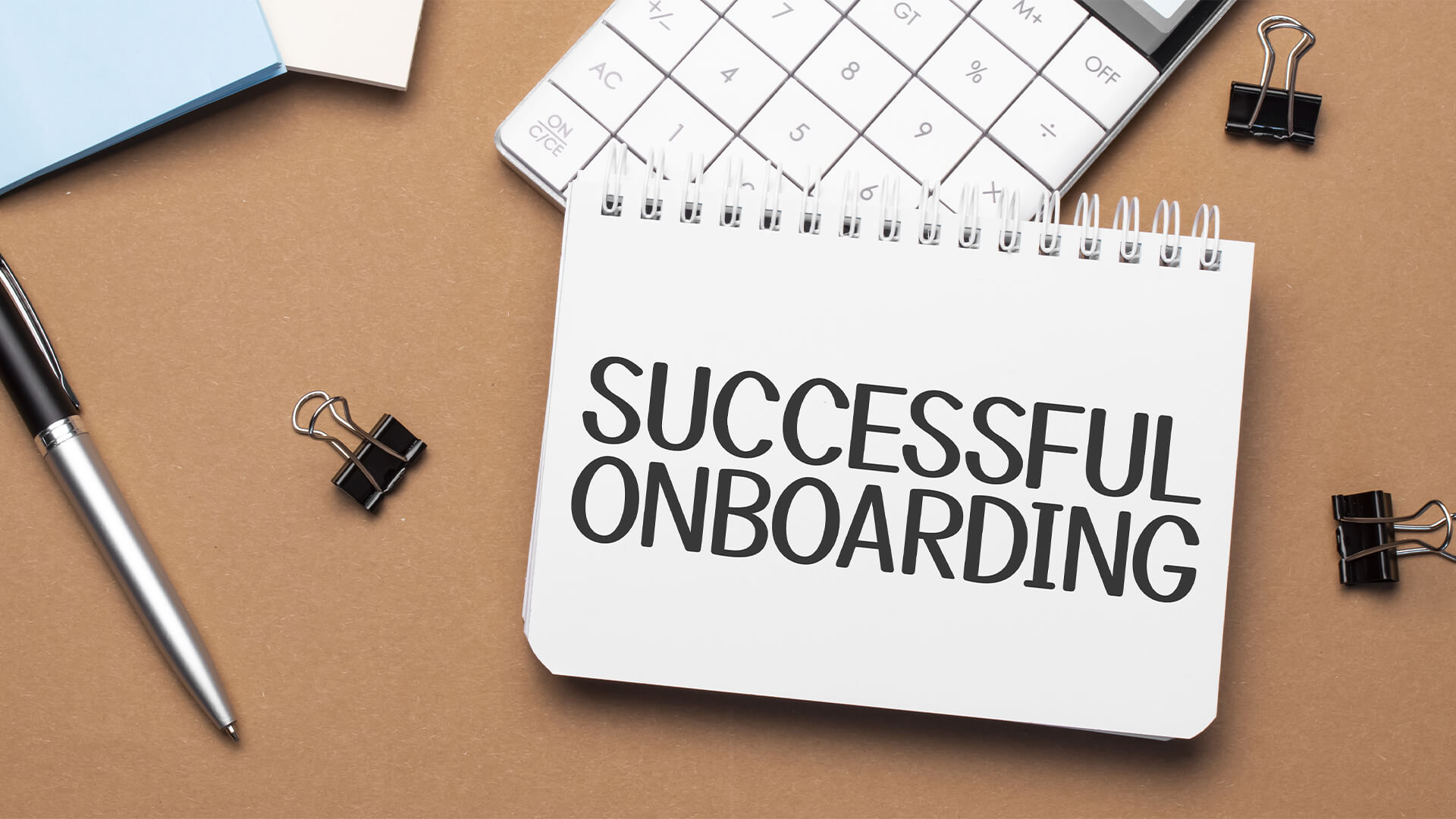If you’re recruiting for your business or searching for new ways to improve your employee retention rate, a well-structured onboarding plan should be a process you are prioritising.
Creating a strong onboarding strategy will enable your new starters to effectively integrate into your business, providing them with the knowledge they need to start their new role and productively contribute to the growth of the company.
If you’re unclear on how to go about introducing new hires to your business, we’ve put together a complete guide on employee orientation to help you build an effective onboarding plan.
What is employee onboarding?
It is important to first reflect on what your understanding of employee orientation and onboarding is. Simply put, onboarding should be understood to be the process of integrating new starters into your company through internal training and support.
Whether your new hires are joining a multinational firm or a small startup, a clear and consistent employee orientation process is key to helping them settle into their new team and excel in their role.
A solid employee onboarding process involves providing job insights, aligning expectations, and sharing the cultural aspects of the company with the new employee.
Particularly in graduate recruitment, when new starters are likely to have limited experience in full-time employment, a strong onboarding plan is crucial in helping less experienced hires become aware of how their role fits into the wider goals of the company.
What does an effective onboarding plan look like?
The best onboarding processes are structured around the needs of the new hire, beginning before the new team member even steps foot in the office for the first time.
As an outline, onboarding plans can be divided into three basic stages: pre-start date, start date and probation period.
Pre-start date
It is essential that all the necessary documents (offer letters, contracts) are provided to successful candidates as quickly as possible to prevent them accepting competing job offers. It’s a good idea to compliment these documents with a welcome pack, detailing the aspects of the job and company that the candidate may have the most questions about.
As the start date gets closer, it is important to ensure that everything is ready in terms of tech. Make sure that new hires have an email address ready, along with an appropriate desk set up stacked with the necessary office supplies.
Create a structured first week timetable for your new hires, with pre-prepared sessions of HR induction and skills training.
Keeping in regular contact with the candidate, via phone or email, is also key. Having an open line of communication with the candidate enables both parties to provide updates on practical matters, such as first day admin e.g., proof of ID.
The lead up to the first day at a new job can be incredibly daunting. Staying in regular contact with candidates provides them with a sense of reassurance and creates a welcoming atmosphere.
Start date
Starting your new hire’s first day with an informal ‘coffee catch up’ is a great way to put them at ease whilst informing them of the day’s proceedings.
Before starting formal induction, it’s a good idea to take new employees on a tour of the office, introducing them to their new team. It is also helpful to assign a mentor from the team who can act as a source of support for your new hire and be on hand to answer any questions that they may have.
Throughout the day, it’s beneficial to have regular check-ins with the new hire to make sure that they have been able to follow their induction timetable, and to gage whether they are settling in well.
Taking your new starters out for lunch or post-work drinks is a nice touch for their first day – it is a great way to show your new employees that they are valued from the start.
Probation period
As your new hire progresses through their first week, involving them in meaningful tasks is key to helping them gain insight into their responsibilities and productively integrate into the team. Moving further into the first month, providing your new hires with gradual ownership of tasks will boost their confidence and engagement.
Throughout the months of their probation, organising end-of-month reviews is useful for both the new hire and senior management. Reviews are a great opportunity to discuss performance, goals and wider ambitions. It’s also a great chance for both parties to gain feedback on areas for improvement.
As their probation period comes to an end, it is important to ask new hires to evaluate their onboarding experience to help your company improve its processes: What was useful? Was the induction thorough enough? How could onboarding be improved for future hires?
The best onboarding processes transform into career development plans once the probation period comes to an end, emphasising to staff that you care about their continual success and growth.
In doing this, businesses benefit from a stronger employee experience and increased retention rates. In this sense, the benefits of good onboarding practices extend beyond the needs of the singular hire towards the promotion of a better company culture for all.
Whether you are looking for support with building your onboarding plan or need to recruit top talent quickly, get in touch and discover our award-winning recruitment services and business resources.

















